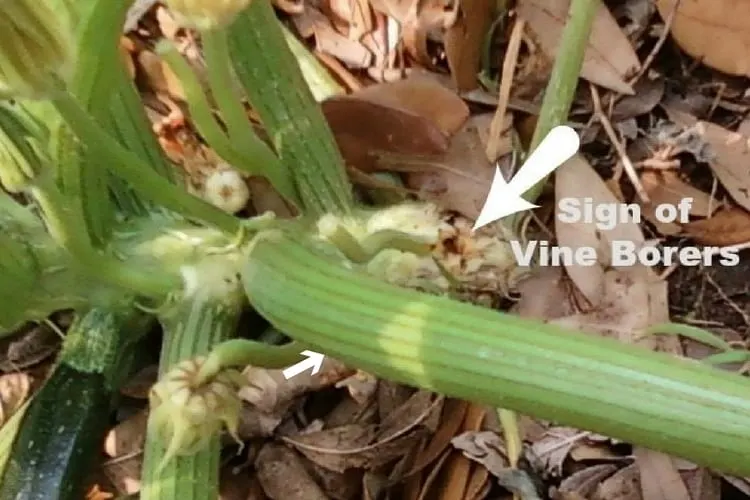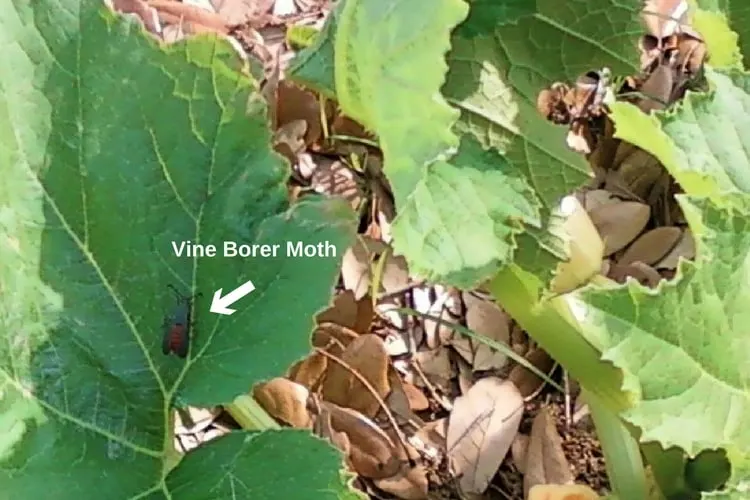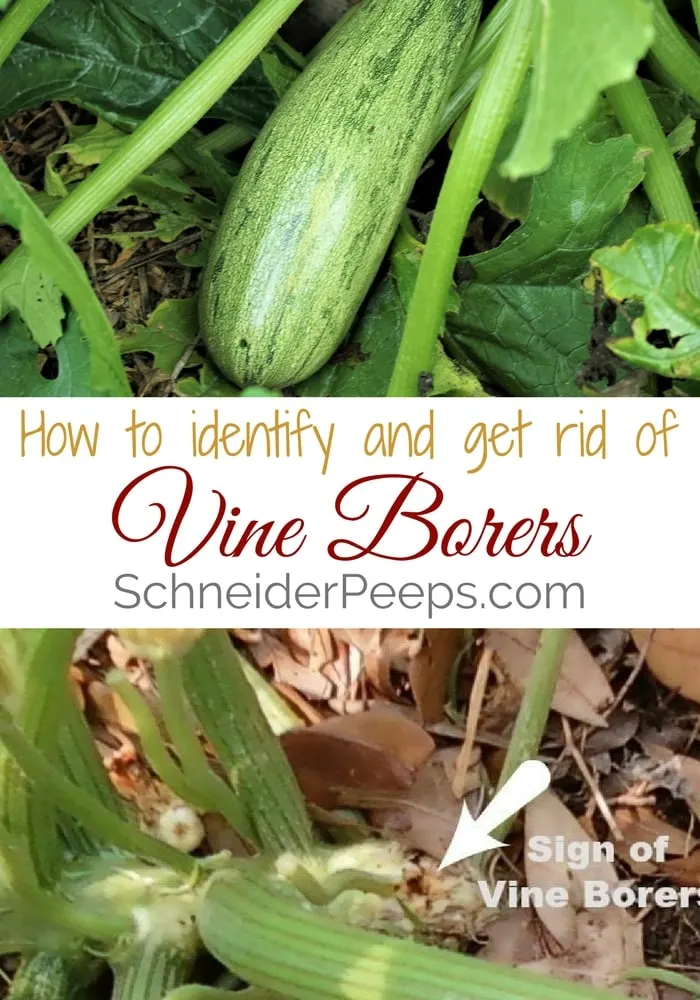If you go out to your garden and the squash that has been doing just fine, is suddenly wilted, you probably have vine borers. We have these every year and since we don’t spray our plants we will probably always have them. We’ve learned how to manage them over the years so that their damage is minimal.

Vine borers can attack summer squash, winter squash, cucumbers or melons. However, since the vine stems of melons and cucumbers are smaller, they rarely get attached.
How to identify vine borers
The vine borer is actually the larva of the vine borer moth. The moth is black and red and is found in the summer garden. However, even if you never see the moth, you might still have vine borers. Wilted squash plants that don’t perk up when watered is a sign of you might have vine borers. The tell-tale sign is “saw dust” at the base of the plant. If you slice the vine open at the saw dust and see white grubs, you have vine borers.

Life cycle of the squash vine borer
- the moth lays her eggs at the base of a squash (or pumpkin or sometimes melon or cucumber) at the soil line.
- she lays about 200 small flat brown eggs! they are not laid in a cluster, oh, no she wants to make sure everyone gets some so she lays them individually
- when the eggs hatch the larvae begin boring into the vine they will stay there and eat for about a month if you let them
- when the larvae is mature, it will form a cocoon and overwinter in the soil
- in the spring, the cocoon opens and out comes the vine bore moth and the cycle starts over again!
- unfortunately, where we live we will experience this 2 times during our growing season. The first time in April and then again in August.

Prevention of the Vine Borer
- use floating row covers – but then you have to hand pollinate each squash
- squish the adults – although they are moths, they aren’t very fast (we do this)
- look at the base for any eggs and squish them
- keep an eye on the base and as soon as you see a small hole investigate and if there is a grub in it, slice it open and take out all the grubs. Then mound up the soil so that the opening is not exposed.
- use bt (dipel dust) around base of plants every week. bt only kills catapillars.
- succession plant squash, melons and cucumbers
- remove and destroy any dead vines immediately – do not compost
- till the area at the end of the season and again in the spring in hopes of killing the pupa in the cocoon.
You can find information about other fruits and veggies by searching clicking on the In The Garden tab up top or in The Gardening Notebook.


Jackie
Saturday 8th of May 2021
Sounds very similar to what we call vine weevils (UK). The adult weevil lays the eggs, which then go into the grub stage & eat the roots, while the adult happily munches on the leaves!! I try to start plants at home as much as I can so that I don't bring them in from other sources.
Angi Schneider
Tuesday 11th of May 2021
That's a great way to help control all kinds of pests. Thanks for sharing Jackie
Charlene
Wednesday 18th of May 2011
This comment has been removed by the author.
The Schneiders
Friday 6th of May 2011
I'm so sorry for you Corinnea! I'm glad that you found them early. The yellow squash that my son did surgery on are still looking good, I'm kind of wishing I had not yanked the zucchini, but my son said that the zucchini plants had like 20 grubs each and the yellow squash only had like 2 each. I'm thinking the bt helped. bt will also kill tomato hornworms (actually any caterpillar, only caterpillars) if you have any of those.
Corinnea
Thursday 5th of May 2011
I can't tell you how happy I am that you posted this!! I finally had time to inspect my pumpkin and zucchini carefully and found several of the plants had been attacked... I've taken them out and will re-sow and buy the powder you spoke of to kill the nasty things!
Pam
Thursday 5th of May 2011
Thanks for linking up! I can't help you with the grubs, the only veggies I grow are hot peppers and nothing seems to bother them too much.